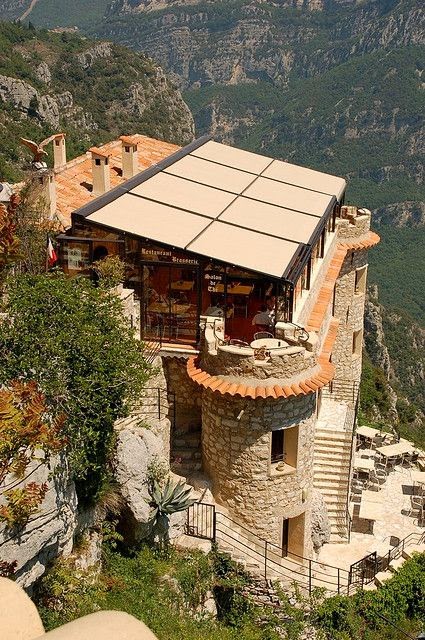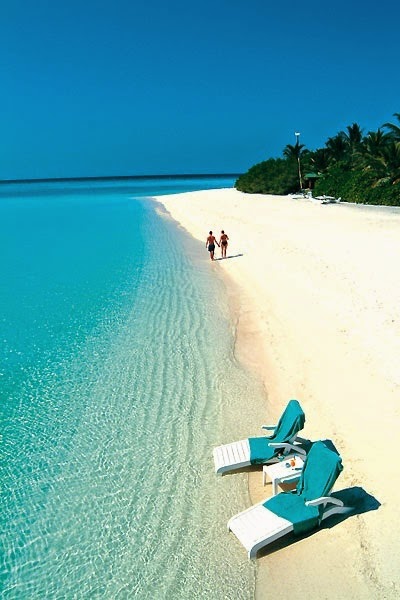Takachiho is located in the northernmost part of Miyazaki Prefecture, bordering Kumamoto Prefecture on its north and northwest sides and Oita Prefecture on its north and northeast sides. The Gokase River flows from the west to the southeast part of town. The heart of the town is at its center, around the now defunct Takachiho Station and the business office of Takachiho Kotsu, the town public transportation company. Source
Wednesday, 30 April 2014
Winter morning - Andermatt, Switzerland
Andermatt is a municipality in the canton of Uri in Switzerland.
With Realp and Hospental, it is located in the Urseren valley, 22 km south of Altdorf. Source
Zhangjiajie National Forest Park, China
The Zhangjiajie National Forest Park is a unique national forest park located in Zhangjiajie City in northern Hunan Province in the People's Republic of China. It is one of several national parks within the Wulingyuan Scenic Area. Source
Church in St. Petersburg, Russia
One of two fascinating gothic churches designed by the German-Russian court architect Yury Felton, the Chesme Church was consecrated in 1780, on the tenth anniversary of Russia's naval victory over the Turkish fleet at Chesme Bay, which occurred on the birthday of John the Baptist, hence the church's name. A wedding-cake structure with striped crenellated walls and five gothic turrets in place of traditional onion domes, this truly unique church has survived almost fully intact to this day, despite the fact that it was turned, along with the Chesme Palace, into part of a forced labour camp by the Soviet government - the cross on the central turret was replaced with a hammer, tongs and anvil to symbolize the toil of the proletariat. Just before the Second World War, the complex was given over to the Institute of Aviation Technology, which still occupies the palace to this day.
Church on Gougane Barra Lake, Ireland
Gougane Barra is a settlement, west of Macroom in County Cork, Ireland.
The name Gougane Barra comes from Saint Finbarr, who is said to have built a monastery on an island in the lake nearby during the 6th century. The present ruins date from around 1700 when a priest called Denis O'Mahony retreated to the island. During the times of the Penal Laws, Gougane Barra's remoteness meant that it became a popular place for the celebration of the Roman Catholic Mass. The nineteenth century oratory which stands near the original monastery is famous for its picturesque location and richly decorated interior and is a popular place for weddings.
It is a popular pilgrimage destination with pilgrims coming to pray a 'round' of prayers described in a 'tablet' at the entrance to the island. This 'round' includes prayers at a series of small stone cells in a small walled court as well as the oratory itself.
The name Gougane Barra comes from Saint Finbarr, who is said to have built a monastery on an island in the lake nearby during the 6th century. The present ruins date from around 1700 when a priest called Denis O'Mahony retreated to the island. During the times of the Penal Laws, Gougane Barra's remoteness meant that it became a popular place for the celebration of the Roman Catholic Mass. The nineteenth century oratory which stands near the original monastery is famous for its picturesque location and richly decorated interior and is a popular place for weddings.
It is a popular pilgrimage destination with pilgrims coming to pray a 'round' of prayers described in a 'tablet' at the entrance to the island. This 'round' includes prayers at a series of small stone cells in a small walled court as well as the oratory itself.
Hoàn Kiếm Lake, Vietnam
According to the legend, emperor Lê Lợi was boating on the lake when a Golden Turtle God (Kim Qui) surfaced and asked for his magic sword, Heaven's Will. Lợi concluded that Kim Qui had come to reclaim the sword that its master, a local God, the Dragon King (Vietnamese: Long Vương) had given Lợi some time earlier, during his revolt against the Chinese Ming Dynasty. Lợi renamed the lake to commemorate this event, it was formerly known as Luc Thuy meaning "Green Water"). The Turtle Tower (Thap Rùa) standing on a small island near the centre of lake is linked to the legend.
Saturday, 26 April 2014
Friday, 25 April 2014
Cappadocia, Turkey
Cappadocia is a historical region in Central Anatolia, largely in Nevsehir Province, in Turkey.
In the time of Herodotus, the Cappadocians were reported as occupying the whole region from Mount Taurus to the vicinity of the Black Sea. Cappadocia, in this sense, was bounded in the south by the chain of the Taurus Mountains that separate it from Cilicia, to the east by the upper Euphrates and the Armenian Highland, to the north by Pontus, and to the west by Lycaonia and eastern Galatia.
The name was traditionally used in Christian sources throughout history and is still widely used as an international tourism concept to define a region of exceptional natural wonders. Source
In the time of Herodotus, the Cappadocians were reported as occupying the whole region from Mount Taurus to the vicinity of the Black Sea. Cappadocia, in this sense, was bounded in the south by the chain of the Taurus Mountains that separate it from Cilicia, to the east by the upper Euphrates and the Armenian Highland, to the north by Pontus, and to the west by Lycaonia and eastern Galatia.
The name was traditionally used in Christian sources throughout history and is still widely used as an international tourism concept to define a region of exceptional natural wonders. Source
Vettica, Campania, Italy
Hamlet of the town of Amalfi and renowned seaside, Vettica Minore is set at the boundaries of the town. Source
The Stunning Medieval Community, Corniglia
Corniglia is a quaint little village and we think the most charming of Italy’s Cinque Terre. With narrow walkways, closely packed medieval buildings, ancient churches, colorful shops, and a few cafes and delis, this is a pleasant old world village. Source
The Great Wall of China
The Great Wall of China is a series of fortifications made
of stone, brick, tamped earth, wood, and other materials, generally built along
an east-to-west line across the historical northern borders of Source
The Lion Monument At Lucerne, Switzerland
The Lion Monument or the Lion of Lucerne, is a
sculpture in Lucerne,
Switzerland,
designed by Bertel Thorvaldsen and hewn in 1820–21 by Lukas
Ahorn. It commemorates the Swiss Guards who were massacred in 1792 during the French
Revolution, when revolutionaries stormed the Tuileries Palace in Paris, France. Mark Twain
praised the sculpture of a mortally-wounded lion as "the most
mournful and moving piece of stone in the world. Source
Friday, 11 April 2014
Wednesday, 9 April 2014
Tasmania, Australia
Tasmania is an island state, part of the
Commonwealth of Australia, located 240 kilometres (150 mi) to the south of the
Australian continent, separated by Bass Strait. The state includes the island
of Tasmania, the 26th largest island in the world, and the surrounding 334
islands. The state has a population of 507,626 (as of June 2010), of whom
almost half reside in the greater Hobart precinct. Tasmania's area is 68,401 square
kilometres (26,410 sq mi), of which the main island covers 64,519 square
kilometres (24,911 sq mi).

.jpg)














.jpg)
































